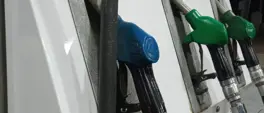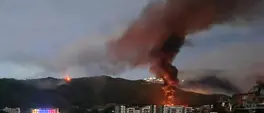Legal action looms for Barbara Creecy as ArcelorMittal pollutes Vaal Triangle
Nica Richards
17 August 2023 | 10:00Vaal Triangle residents residing in Vereeniging, Vanderbijlpark and Sasolburg have had to content with hydrogen sulfide, synonymous with a pungent rotten egg odour, for decades, court papers submitted by VEJA and groundWork read.
JOHANNESBURG - Two environmental justice organisations are seeking to set aside what they deem to be questionable decisions made by Department of Forestry, Fisheries and Environment Minister (DFFE) Barbara Creecy, said to be choking residents of the Vaal Triangle.
The Vaal Environmental Justice Alliance (VEJA) and groundWork, represented by the Centre for Environmental Rights (CER) on Wednesday announced their intention to launch a review application to set aside decisions made Creecy and the National Air Quality Officer (NAQO) allowing ArcelorMittal South Africa (AMSA) to pollute the regions at rates "three to seven times weaker than the 2015 emission standards".
ALSO READ:
AMSA's Vanderbijlpark Works is one of the largest inland steel mills in the world. Steel is manufactured by using raw materials such as iron ore, coke, and dolomite, which are charged to blast furnaces to be converted to liquid iron. This is refined in oxygen furnaces to produce liquid steel.
Its "core business" is producing commercial coke for the ferroalloy industry from coke batteries in Pretoria, Newcastle, and Vanderbijlpark.
In the early 2000s, in an attempt to clean up their outdated coke batteries, AMSA launched the Coke Oven Clean Gas and Water project, to install new technology aimed at complying with international Environmental Best Practice Standards. The plant began construction in 2005 and was commissioned in 2010, but owing to delays and challenges, it was closed at the end of 2010.
As a result, sulphur is not removed from the coke oven gas, which means emissions, notably sulphur dioxide, are released.
In March 2020, NAQO granted AMSA a postponement to comply with minimum emission standards. The subsequent appeal launched by the applicants was dismissed by Creecy in February 2023, and AMSA was granted their emissions postponement.
VEJA and groundWork argue Creecy's decision was "unreasonable, unlawful, unconstitutional and invalid", violating the Air Quality Act and residents' constitutional rights not to be exposed to pollution that would be harmful to their health.
Under special circumstances, the act does allow for older plant operators to apply for a postponement of compliance with 2020 mininum emissions standards, and can seek weaker limits. But VEJA and groundWork argue concessions were made for AMSA that are weaker than 2015 minimum emission standards.
They said that Vaal Triangle residents residing in Vereeniging, Vanderbijlpark and Sasolburg have had to contend with hydrogen sulfide (H₂S), synonymous with a pungent rotten egg odour, for decades. Even at low concentrations, H₂S can cause headaches, eye and lung irritation, unconsciousness, neurological, metabolic, and reproductive defects, and even death.
Although there are no National Ambient Air Quality Standards for H₂S, the pollutant can be converted into sulphur dioxide.
Court papers allege no progress had been made to rectify the ongoing pollution, despite abatement equipment being installed in 2010 and only functioning for a few months.
Criminal proceedings were instituted against AMSA in 2018 after equipment meant to quell the H₂S pollution was not operational. After pleading guilty and being fined, AMSA conceded in 2022 that the equipment was still not functional.
AMSA spokesperson Tami Didiza said the company was "mindful of the importance of conducting our business in a responsible and ethical manner", and was "continuously improving" its "environmental performance".
"This includes regular engagement with our stakeholders, including stakeholders such as VEJA and the CER.
"It is important to point out that the court application relates to a matter decided by the Minister within the framework of the legislation, after due process and a duly motivated application by ArcelorMittal South Africa.
"The application will therefore be opposed, and ArcelorMittal South Africa will respond to the allegations set out in the application in due course as a part of the legal process."
VEJA co-ordinator Samson Mokoena said the Vaal Triangle was being treated "like a sacrifice zone", with those subjected to pollution dying, being injured, and having their lives destroyed.
"This area was declared a priority area in 2006, and yet we are still breathing deadly air with very little recourse for the protection of our constitutional rights.”
DFFE spokesperson Peter Mbelengwa told Eyewitness News the department noted VEJA and groundWork's court action intention and was in "consultation with its legal team on the response".















